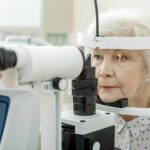
What is Glaucoma?
May 20, 2020
The Dangerous Risks Associated with Coronavirus and Diabetes
May 28, 2020What is Parkinson’s Disease?
Parkinson’s disease (PD) is a nervous system disorder that affects the brain’s ability to control movement, it gets worst over time. People with Parkinson’s disease often shake or show other abnormal movements. Although PD can’t be cured, treatments can help to manage symptoms and improve a person’s quality of life.
Parkinson’s Disease Causes
Parkinson’s disease is caused by a loss of nerve cells in the part of the brain called the substantia nigra. These nerve cells produce an important chemical called dopamine, which sends signals to the part of the brain that controls movement. In people with PD, these nerve cells degenerate and the amount of dopamine in the brain is reduced. The cause of this degeneration is unknown.
Some researchers believe Parkinson’s disease results from a combination of genetic and environmental factors.
Parkinson’s disease more common in older people, it affects around 1 percent of people aged 65 years and older. And it appears to affect men 1.5 times more than women.
Parkinson’s Disease Symptoms
The symptoms of Parkinson’s disease usually get worse over time. They vary from one person to another also the order in which the symptoms develop, and their severity is different for each person.
Parkinson’s disease is difficult to diagnose, especially in the earlier stages. Early signs of Parkinson’s disease can be easy to miss, they develop slowly and usually start on one side of the body. If someone notices symptoms of Parkinson’s disease, they should contact their doctor. Parkinson’s disease can’t be cured, but early treatment can help control the symptoms.
Early symptoms of Parkinson’s disease include:
- Tremors – shaking, which usually begins in the hands or arms, is one of the most common signs of Parkinson’s.
- Difficulty walking – stiffness in arms and legs, walking slowly or dragging feet while walking.
- Cramped or small handwriting – this condition is called micrographia, it is associated with medical conditions that affect the nervous system, such as Parkinson’s disease.
- Loss of smell – it is one of Parkinson’s disease symptoms that are not related to movement. It can appear several years before the disease affects a person’s movement.
- Trouble Sleeping- including difficulty falling asleep or staying asleep, sudden movements during sleep, and other sleeping problems.
- Bradykinesia- which means slowness of physical movement.
- Facial masking- people with Parkinson’s disease often have weak face and throat muscles, their ability to make facial expressions is reduced, this is called facial masking.
- Stooping or hunching over- people with Parkinson’s disease may start leaning forward, making them appear hunched or stooped over.
- Constipation- it is one of the most common non-motor symptoms associated with Parkinson’s disease, it results from a slowdown in smooth muscle activity in the digestive system.




